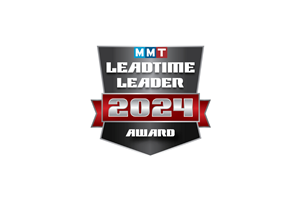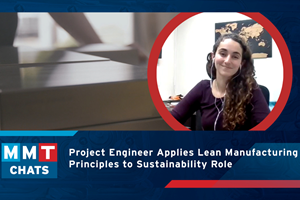The American Manufacturing Trade Action Coalition
This grassroots effort pledges to raise awareness on this country’s current trade policy and effect change to level the playing field in regards to U.S. manufacturing.
For the past seven years, the American Manufacturing Trade Action Coalition (AMTAC) has made good on its mission to “preserve and create American manufacturing jobs through the establishment of trade policy and other measures necessary for the U.S. manufacturing sector to stabilize and grow” through intensive lobbying efforts that have resulted in making the American public more aware of how trade regulations have been negatively impacting the United States.
According to AMTAC Executive Director Auggie Tantillo, this grassroots organization was formed as “the result of concern on the part of a number of U.S. manufacturers in regard to trade policy and the damage that it was inflicting on the U.S. industrial base.”
Coalition Services
AMTAC’s efforts are primarily lobbying-related. “We identify issues that we believe are important to the U.S. manufacturing base, and then develop strategies with our members to have a voice in how those policies evolve and are developed—with a very keen perspective on trying to preserve the U.S. industrial base and workforce,” Tantillo explains.
AMTAC Director of Membership and Media Outreach Lloyd Wood adds that AMTAC represents approximately 100 member companies, whose names they do not divulge “as a matter of course.” Five employees carry out the association’s mission—all people who have had some expertise and experience associated with Washington policy development and/or affecting Washington policy development.
“We are clearly focused on identifying trade-related issues that are winding their way through Congress or the Executive Branch,” Tantillo states, “in an effort to bring a true, pure domestic voice to the table arguing for rational trade policy that takes into account the numerous and oftentimes devastating advantages that many of our foreign competitors enjoy.”
Overcoming Obstacles
The main obstacle AMTAC has encountered is a plethora of organizations and interests that Tantillo describes as being “on the opposite side” of the trade policy debate. “Unfortunately, this is a well-organized, extremely well-funded and very effective lobbying coalition made up of importers and retailers, as well as foreign governments and corporations,” Tantillo comments. “They have come to Washington and pressed for an ever-increasing liberalization of the U.S. market so that goods can be produced cheaply offshore using subsidies, low cost labor, and lax environmental safety and health rules. In return, we have produced a legitimate voice of opposition to that coalition.”
Wood adds that AMTAC successfully secured safeguards on textile and apparel products in China. “We beat the free trade lobby on that particular issue when there was an enormous amount of political pressure to give China an open spigot to our market while letting them subsidize to capture as much of the U.S. market as possible,” Wood says. “We managed to slow the growth of U.S. imports from China through the mass filing of safeguard cases with the U.S. government. After filing the cases, AMTAC and others within the industry then were able to place sufficient pressure on the U.S. government to approve a number of the cases.”
Reaching Goals
AMTAC has a long road ahead when it comes to defining a solution to the trade issue. “We have developed some very specific concepts for defining the solution to this problem,” Tantillo affirms. “But, as with any debate that involves Congress, the Executive Branch, and the dozens of political appointees involved in the trade policymaking process, there will be varying opinions on how to overcome America’s economic problems. Our challenge is to begin to get enough people to coalesce around a rational and specific set of trade policy solutions that will grow the U.S. manufacturing sector and the nation’s economy at large.
“We also need to deal with China’s currency manipulation,” Tantillo continues. “China also is providing its manufacturers with numerous and lucrative state-sponsored subsidies that lower their cost of production, giving them an unfair advantage in the marketplace. If America were simply to sit down and develop an approach with China that is based on a rational view of the current situation, namely the need to eliminate China’s illegal trade practices, we would be making tremendous progress in this fight. Hopefully, the new Obama Administration will do just that.”
Related Content
FAQs: What Are the Leadtime Leader Awards?
Here are answers to some frequently asked questions about MoldMaking Technology's annual Leadtime Leader Awards competition.
Read MoreVIDEO: What You Need to Know about the R&D Tax Credit Today
A team member from Strike Tax Advisory reviews the tax changes that are impacting the R&D credits for mold builders.
Read MoreU.S. Economic Fundamentals Impacting Moldmaking
The economy continues to downshift, capping growth in moldmaking.
Read MoreMMT Chats: Project Engineer Applies Lean Manufacturing Principles to Growing Sustainability Role
MoldMaking Technology Editorial Director Christina Fuges catches up with MMT’s 30-Under-30 Honoree Katherine Pistorius, who has added Regional Sustainability Coordinator alongside her Project Engineer duties, which demonstrates the many paths one can take in a manufacturing career. Here she shares how this opportunity unfolded for her and what the job entails today and in the future. This episode is brought to you by ISCAR with New Ideas for Machining Intelligently.
Read MoreRead Next
Reasons to Use Fiber Lasers for Mold Cleaning
Fiber lasers offer a simplicity, speed, control and portability, minimizing mold cleaning risks.
Read MoreHow to Use Continuing Education to Remain Competitive in Moldmaking
Continued training helps moldmakers make tooling decisions and properly use the latest cutting tool to efficiently machine high-quality molds.
Read MoreAre You a Moldmaker Considering 3D Printing? Consider the 3D Printing Workshop at NPE2024
Presentations will cover 3D printing for mold tooling, material innovation, product development, bridge production and full-scale, high-volume additive manufacturing.
Read More














.jpg;maxWidth=300;quality=90)

_300x250 4.png;maxWidth=300;quality=90)








